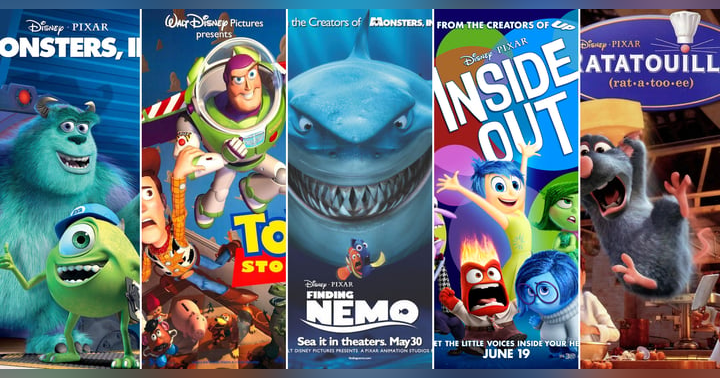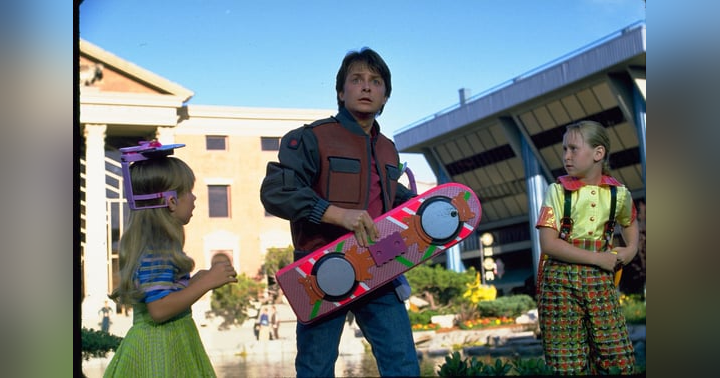20 Groundbreaking Movies of the 70s

The 1970s were a golden age of cinema, giving rise to 20 groundbreaking movies of the 70s that transformed the art and business of filmmaking. Following the collapse of Hollywood’s rigid studio system, visionary directors like Francis Ford Coppola, Martin Scorsese, and Steven Spielberg gained creative freedom to tell bold and personal stories. This freedom allowed filmmakers to push boundaries, resulting in films that tackled complex themes such as societal corruption, war, alienation, and trauma. At the same time, Hollywood experienced a technological revolution with advancements in visual effects, sound design, and cinematography that redefined how films were made and experienced.
The 1970s also introduced a seismic shift in the film industry's business model. The era saw the rise of the blockbuster, with films like Jaws and Star Wars demonstrating how a single movie could dominate global markets with merchandising, tie-ins, and wide releases. Meanwhile, genre films such as The Exorcist and Alien proved that horror and science fiction could achieve both critical acclaim and box-office success. These films shaped the future of cinema, laying the foundation for modern filmmaking, franchise-building, and global pop culture. Let’s dive into the most influential and groundbreaking films of the decade.
1. The Godfather (1972)
Francis Ford Coppola's The Godfather remains one of the most revered films of all time. Based on Mario Puzo’s novel, it elevated the gangster genre with a sweeping, operatic story about loyalty, family, and power. Marlon Brando’s portrayal of Don Vito Corleone became iconic, and Al Pacino’s transformation from reluctant heir to ruthless mob boss Michael Corleone gave the film emotional depth. With unforgettable performances, Gordon Willis’s shadow-drenched cinematography, and a haunting score by Nino Rota, The Godfather changed the landscape of cinematic storytelling.
2. The Godfather Part II (1974)
Few sequels live up to their predecessors, but The Godfather Part II surpasses expectations. Coppola expanded the Corleone saga by telling two parallel stories: Michael Corleone’s (Al Pacino) tightening grip on power and his father Vito’s (Robert De Niro) rise from immigrant hardship to criminal empire builder. The film deepens the themes of family, legacy, and corruption while delivering breathtaking performances and emotional weight. De Niro’s portrayal of young Vito earned him an Oscar and cemented the sequel as one of the greatest in film history.
3. Apocalypse Now (1979)
Coppola’s Apocalypse Now is a harrowing journey into the heart of darkness. Set during the Vietnam War, the film follows Captain Willard (Martin Sheen) as he embarks on a dangerous mission to kill the renegade Colonel Kurtz (Marlon Brando). Coppola blends surreal imagery, psychological tension, and intense performances to create a nightmarish meditation on the madness of war. With scenes like the iconic helicopter assault scored to Wagner’s "Ride of the Valkyries," Apocalypse Now became a landmark in war cinema.
4. Star Wars (1977)
George Lucas’s Star Wars redefined the blockbuster and revolutionised the sci-fi genre. Blending the classic hero’s journey with cutting-edge special effects, Lucas crafted an unforgettable galaxy of characters, including Luke Skywalker, Princess Leia, and Darth Vader. The film’s groundbreaking visual effects and John Williams’s iconic score captivated audiences worldwide. Star Wars became a cultural phenomenon and the foundation of one of the most successful franchises in history.
5. Jaws (1975)
Steven Spielberg’s Jaws terrified audiences with its suspenseful story of a great white shark attacking a beach community. Known for its masterful use of tension, Spielberg kept the shark hidden for much of the film, using John Williams’s ominous score to build fear. Jaws became the first modern summer blockbuster, proving that high-concept thrillers could critically and commercially dominate. Its success changed how Hollywood approached marketing, distribution, and release strategies.
6. Chinatown (1974)
Roman Polanski’s Chinatown is a dark, complex tale of corruption, greed, and family secrets in 1930s Los Angeles. Jack Nicholson stars as private detective Jake Gittes, who becomes ensnared in a conspiracy involving water rights and murder. With a screenplay by Robert Towne, Chinatown masterfully balances the neo-noir atmosphere with tragic storytelling. Nicholson and Faye Dunaway’s performances, combined with Polanski’s direction, make the film one of the greatest mysteries ever told on screen.
7. Taxi Driver (1976)
Martin Scorsese’s Taxi Driver is a disturbing exploration of urban decay and alienation. Robert De Niro’s performance as Travis Bickle, a mentally unstable cab driver, became one of cinema’s most iconic portrayals of a fractured antihero. The film’s themes of moral ambiguity, loneliness, and violence struck a chord with audiences and critics, solidifying Scorsese as one of the leading directors of his generation.
8. A Clockwork Orange (1971)
Stanley Kubrick’s A Clockwork Orange is a chilling dystopian tale of violence, free will, and state control. Malcolm McDowell’s portrayal of Alex DeLarge, a sadistic delinquent subjected to brutal psychological conditioning, is both terrifying and captivating. Kubrick’s stylised direction, striking imagery, and provocative themes sparked both acclaim and controversy, ensuring the film’s lasting impact.
9. The Exorcist (1973)
William Friedkin’s The Exorcist remains one of the most terrifying films of all time. Based on true events, it tells the story of a young girl possessed by a demonic entity. The film’s shocking visuals, intense performances, and groundbreaking special effects captivated audiences and earned critical praise. It became the first horror film nominated for a Best Picture Oscar.
10. One Flew Over the Cuckoo’s Nest (1975)
Milos Forman’s adaptation of Ken Kesey’s novel is a powerful story of rebellion against institutional control. Jack Nicholson stars as Randle McMurphy, a free-spirited inmate who challenges the oppressive rules of a psychiatric hospital. The film’s emotional resonance and social commentary helped it win five major Academy Awards, including Best Picture.
11. Rocky (1976)
Sylvester Stallone’s Rocky is the ultimate underdog story, blending raw emotion, perseverance, and grit. Stallone’s portrayal of struggling boxer Rocky Balboa became iconic, and the film’s training montages and rousing finale captured the hearts of audiences worldwide. Rocky remains a cultural touchstone for tales of triumph against the odds.
12. Alien (1979)
Ridley Scott’s Alien groundbreakingly combined sci-fi and horror. Sigourney Weaver’s Ellen Ripley became one of cinema’s most iconic heroes, while H.R. Giger’s terrifying creature design redefined sci-fi horror. The film’s claustrophobic tension and stunning visuals continue influencing genre films today.
13. The French Connection (1971)
William Friedkin’s The French Connection is a gritty crime thriller known for its realistic style and thrilling car chase sequence. Gene Hackman’s portrayal of Popeye Doyle, a tough, relentless detective, won him an Oscar and helped establish the film as a landmark in crime cinema.
14. Blazing Saddles (1974)
Mel Brooks’s Blazing Saddles is a hilarious and sharp satire of racism and Western tropes. Its outrageous humour, boundary-pushing gags, and subversive wit helped redefine comedy in the film. The movie’s irreverence and fearless commentary remain influential in comedic storytelling.
15. The Deer Hunter (1978)
Michael Cimino’s The Deer Hunter is an emotionally devastating exploration of friendship, trauma, and the Vietnam War. Robert De Niro, Christopher Walken, and Meryl Streep deliver heartbreaking performances, particularly in the film’s infamous Russian roulette scenes. The film’s raw intensity made it a defining anti-war statement.
16. Dirty Harry (1971)
Clint Eastwood’s portrayal of Harry Callahan in Dirty Harry created the quintessential antihero archetype. Known for its gritty tone and moral ambiguity, the film explores themes of justice and vigilantism, leaving a lasting influence on the action-thriller genre
17. Annie Hall (1977)
Woody Allen’s Annie Hall broke romantic comedy conventions with its witty, unconventional structure and introspective exploration of relationships. Diane Keaton’s portrayal of the titular character became iconic, and the film’s influence on modern rom-coms remains strong.
18. Halloween (1978)
John Carpenter’s Halloween set the template for the slasher genre. With its minimalist approach, eerie score, and the terrifying presence of Michael Myers, the film remains one of horror’s most influential works.
19. Network (1976)
Sidney Lumet’s Network is a scathing critique of television and sensationalist media. Peter Finch’s iconic "I’m as mad as hell" monologue captured the film’s themes of disillusionment and corporate greed, making it more relevant than ever.
20. Close Encounters of the Third Kind (1977)
Steven Spielberg’s Close Encounters blends awe and wonder with a deeply human story of first contact with aliens. Its stunning visuals and emotional resonance have made it one of the most beloved sci-fi films of all time.
These 20 groundbreaking movies of the 70s redefined cinema with bold storytelling, technological innovation, and genre reinvention. Directors like Coppola, Spielberg, and Scorsese shattered conventions, taking artistic risks that produced masterpieces still celebrated today. This decade not only gave us iconic films but also changed how Hollywood operated. The rise of the blockbuster introduced the concept of global franchises, while technological advancements in special effects and cinematography paved the way for modern filmmaking techniques.
Moreover, the 1970s expanded what cinema could achieve emotionally and intellectually. Films like Taxi Driver and Chinatown examined deep psychological and societal issues, while Star Wars and Alien demonstrated how imaginative storytelling could captivate audiences worldwide. These films continue to influence filmmakers, inspiring new generations to push creative boundaries. It’s no wonder the 1970s is often hailed as the greatest decade in cinema history.















